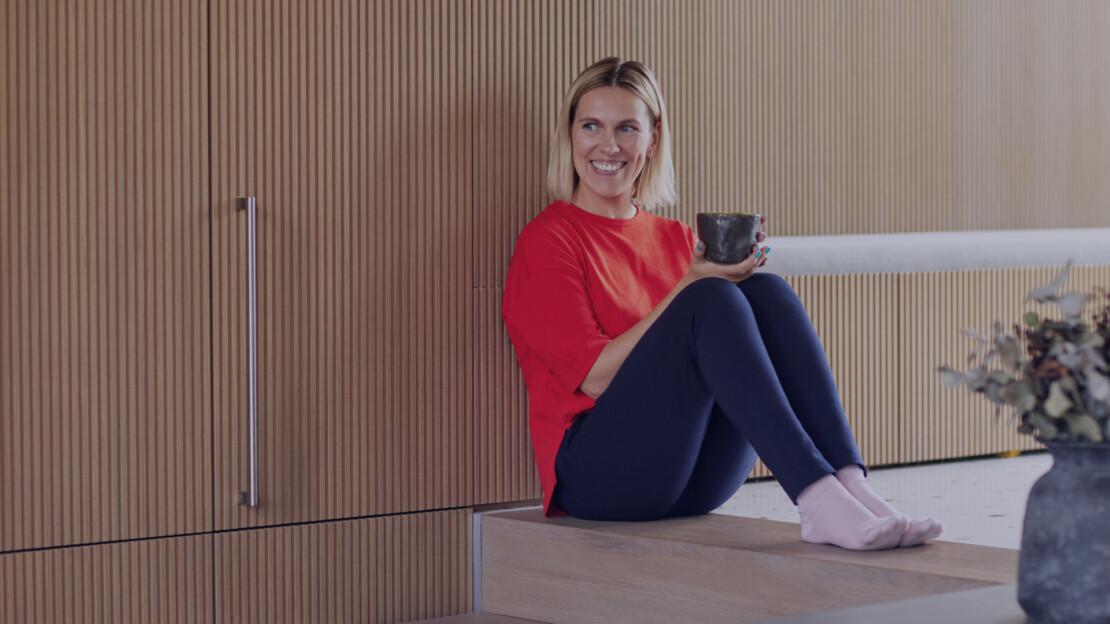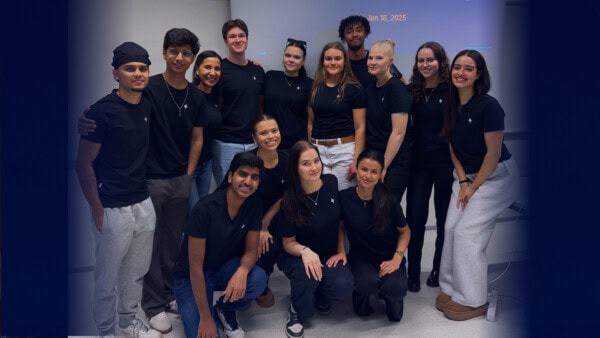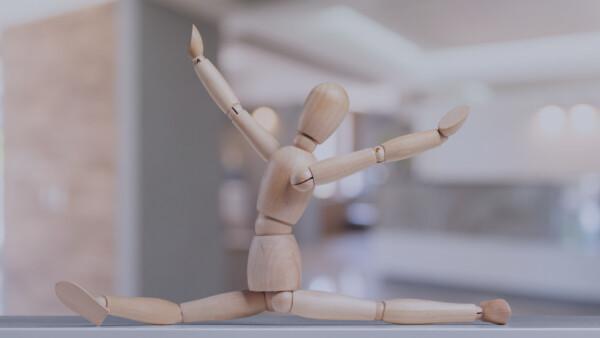8May2025
For Milda Mitkute, co-founder of Vinted and our Nordic Business Forum 2025 speaker, success comes not from stubbornly sticking to your original plan but from embracing change, navigating the unknown with courage, and building meaningful solutions around people.
In a recent interview, Milda shared her experience on the real challenges of entrepreneurship, from balancing vision and values to facing uncertainty, building the right team, and staying attuned to the needs of customers and society.
The Vision Trap
One of the most persistent pieces of advice in startup culture is to stay loyal to your founding mission. Milda disagrees: “I would like to challenge whether you should stay loyal to your mission and vision. In my experience, I see that it’s okay that vision changes over time.”
She explained that it’s very common for founders to want to stick with their initial idea, which often becomes a trap in the long run. Instead, it’s essential to stay open and adaptable and realize that the solution you’ve created might not yet be complete. You should listen to what the market is telling you and modify your product and vision accordingly.
Values, Milda argues, are slightly different, but not rigid either. She pointed out that our values change as we mature, and the same is true for your business. However, they still serve as an important compass—just be sure not to treat them as a cage.
Although some change is necessary and expected, straying away from your initial focus too much is not a good idea. It’s not unusual that founders slowly shift from focusing on their product to focusing on making money. Milda’s advice is that one cannot live without the other, and you always need to find the right balance to succeed.
Facing the Unknown
One of the biggest challenges founders face on their journey is the unknown. Milda likens the startup journey to parkour—a constant navigation of unexpected obstacles to reach your goal.
“The question is, how do you deal with that unknown, that massive unknown in your mind. Do you learn to deal with that, or do you become close-minded?”
Facing that chaos and uncertainty is mentally draining, and we need to find ways to cope. Milda warns us of the tendency to start protecting ourselves from the unknown and closing our eyes and ears to the outside world. She urges us to think about how we deal with it personally, as “the unknown can destroy you, or it can elevate you.”
This also makes it more difficult to make and stick to decisions. Milda’s advice is to sometimes just “fake it till you make it.” By this, she means that sometimes we need to pretend or convince ourselves that we know enough, because otherwise, we get stuck and cannot take action. As an entrepreneur in an uncertain world, there is a high likelihood that you don’t even know what you don’t know. Yet at the same time, you still need to be able to make decisions to take your business forward.
Milda believes that the unknown will elevate you when you do not face it alone. When dealing with complex challenges, it’s impossible for one person to understand everything. Your team is your best support in navigating the unknown.
“I don’t believe that one person is capable of solving almost anything in our world.”
Put People First
As a founder and entrepreneur, you need to possess a wide set of skills and qualities. Milda pointed out two that were perhaps the most important during her journey: being a team player and understanding people.
By being a team player, she means more than just being a good collaborator. Milda’s strategy is to define what kind of skills are needed to complete a certain goal and seek out the right people for the task. “I always try to attract people who are equal or more knowledgeable than I am,” she elaborated. She reasons that by acknowledging your limitations and seeking out people who complement you and each other, you can form a team that is stronger than the mere sum of its parts.
Interestingly enough, she expanded this beyond her team at Vinted to understanding customers as well. To form these complementary teams, you need a good understanding of people and the problem you’re trying to solve. When it comes to customers, you need to do the same; understand who your customers are and what problems they face. This people-first mentality was Milda’s strength from the very beginning and helped her both bring value to customers and unite the people in her team for a common purpose.
Create Something Meaningful
Based on Milda’s insights, we can say that the recipe for success starts by understanding the customer and what they need. She argued that a business should always create a solution based on its customers’ problems, rather than create a solution first and then try to find a customer who matches what you’ve created.
This, she says, is an issue she has witnessed multiple times in the world of start-ups. Some founders become so entranced by their idea that they fail to make sure there’s a product-market fit. “As an investor, I see so many examples of just starting to build a product and starting to scale without building the perfect product that fits in the market first,” she explained.
“The right product to the right people is the key. You can add scale, expansion, marketing, only when you have something valuable to share with the world.”
The Process of Experiments
Many things can come to your mind when you think about entrepreneurship, but Milda offers an actionable and straightforward definition: “entrepreneurship is about the process of experiments.” She believes that as an entrepreneur, you need to accept that you are on a learning curve and mistakes are inevitable. Therefore, you need to adopt a learning mindset for yourself and expand it to your team.
At Vinted, failure wasn’t—and still isn’t—feared. It’s expected and essential for the growth of the company. This culture of psychological safety empowers the team to keep trying, learning, and innovating. Without that foundation, Milda believes true innovation is nearly impossible. When your goal is to learn, the failures become a natural part of the process, and you become brave enough to take the necessary risks and keep trying.
Sustainable Growth
Seventeen years ago, sustainability was far from a top reason for using Vinted. Today, it’s among the top three. This shift toward a more sustainable economy and consumption behavior can be felt by all businesses, and the call comes from all around us.
Milda pointed out three sources of sustainability pressure: regulations, consumers, and employees. Especially in Europe, there are several regulations that impact how a business operates. However, the biggest pressure comes from people.
“I’m going to give lots of credit to the younger generations. I think that for them, it’s in their blood. For them, it’s no question. It’s a very equally important pillar next to your business model, implementation, and so on. Your sustainability strategy is equally important.”
The younger generations are especially concerned about sustainability and how to reduce their environmental footprint, which is reflected in their buying behavior. Furthermore, as Milda noted, anyone can educate themselves on sustainability, and people in general have become increasingly aware of how their behavior impacts the environment. Not only customers, but the employees within a company advocate for more sustainable practices and choices.
This forces businesses to become more transparent about their environmental footprint and create sustainable solutions. This is an incredible opportunity to innovate, and an important reminder to build your sustainability strategy together with your business.

 by:
by: 

